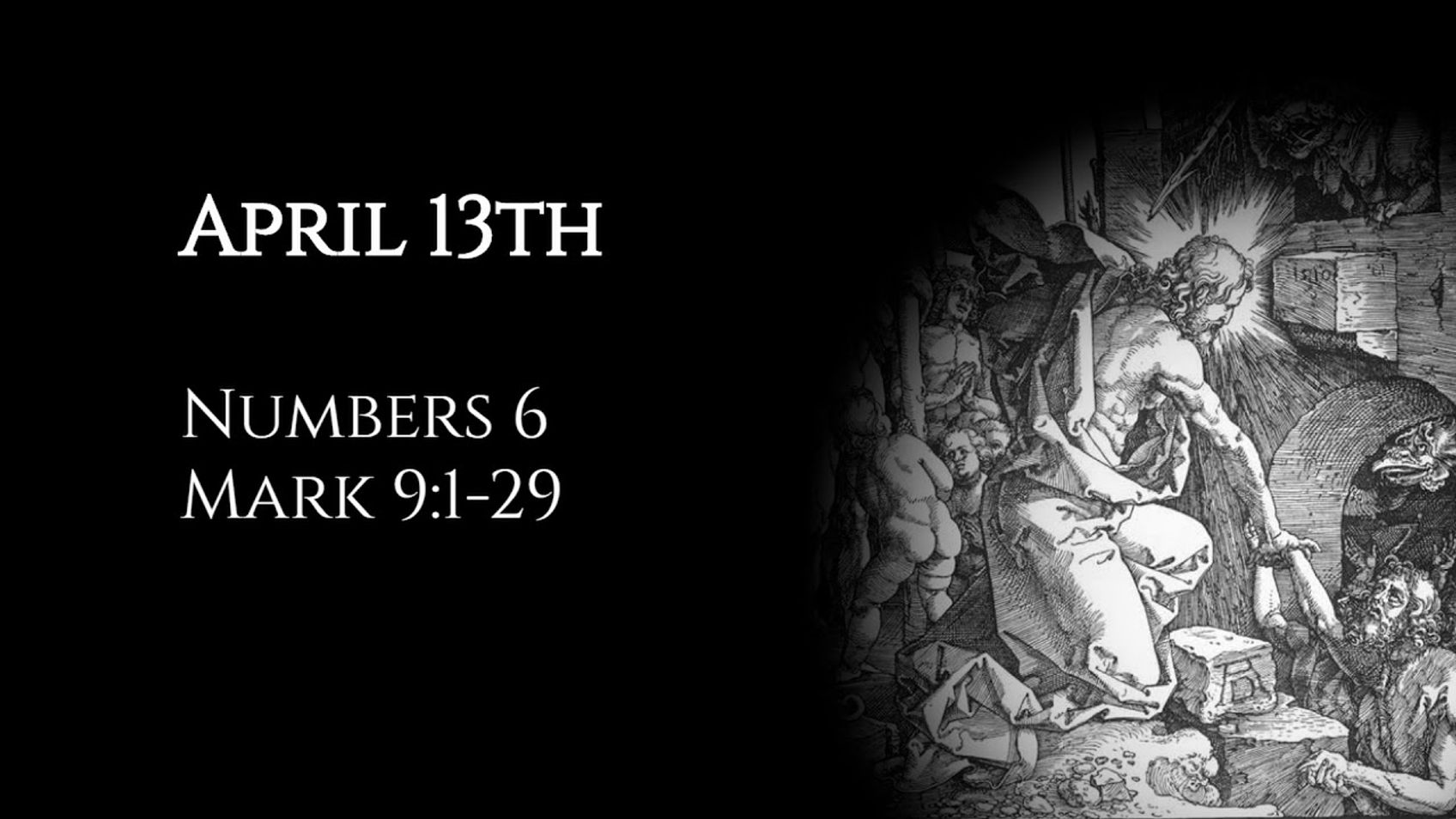April 13th: Numbers 6 & Mark 9:1-29

The Nazirite. The Transfiguration.
Some passages referenced:
Numbers 5:2-3 (the holiness of the camp); Leviticus 27 (vows); 2 Samuel 11:6-13, 1 Samuel 21:4-6, Deuteronomy 23:9-14 (consecration and wartime); Leviticus 25:5, 11 (untrimmed hair and unpruned vines); Leviticus 10:9 (the priests and wine); Leviticus 21:10-12 (the high priest and dead bodies); Judges 13:3-5, 1 Samuel 1:11, Luke 1:13-15, Acts 18:18 (Nazirites and vows in Scripture); Leviticus 8:22-29 (priestly ordination); Leviticus 4:32 (a ewe lamb for a commoner’s sacrifice); 1 Chronicles 23:13 (the Aaronic priesthood and blessing); Psalm 67, 121 (allusions to the blessing).
2 Peter 1:16-18 (Peter refers to the Transfiguration); Exodus 24:16-18 (six days before ascending the mountain); Deuteronomy 32:5, 20 (faithless generation).
Reflections upon the readings from the ACNA Book of Common Prayer (http://bcp2019.anglicanchurch.net/).
If you have enjoyed my output, please tell your friends. If you are interested in supporting my videos and podcasts and my research more generally, please consider supporting my work on Patreon (https://www.patreon.com/zugzwanged), using my PayPal account (https://bit.ly/2RLaUcB), or by buying books for my research on Amazon (https://www.amazon.co.uk/hz/wishlist/ls/36WVSWCK4X33O?ref_=wl_share).
The audio of all of my videos is available on my Soundcloud account: https://soundcloud.com/alastairadversaria. You can also listen to the audio of these episodes on iTunes: https://itunes.apple.com/gb/podcast/alastairs-adversaria/id1416351035?mt=2.
More From Alastair Roberts


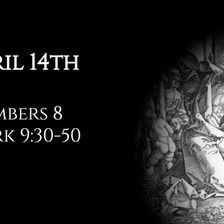
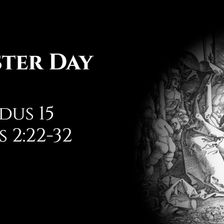
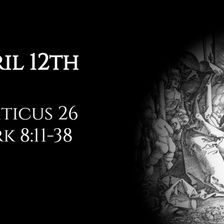
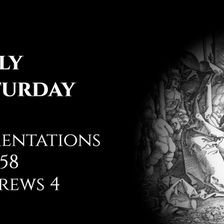
More on OpenTheo















